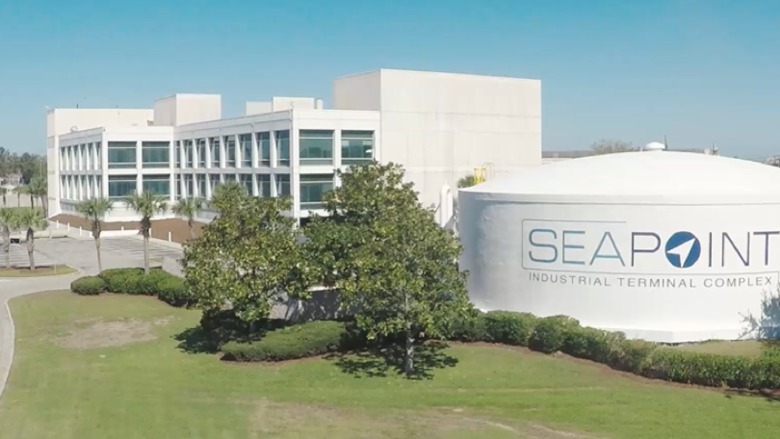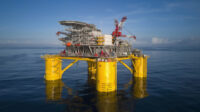Georgia Brownfields program completes landmark environmental remediation project with SeaPoint
"Finishing the cleanup at SeaPoint is an important step toward our vision of a net-zero carbon emissions deepwater terminal complex.”

Dulany Industries, Inc. announced today that SeaPoint Industrial Terminal Complex – an innovative multi-use, multi-tenant industrial terminal site in Savannah, Ga. with a strong focus on sustainability – recently completed a landmark environmental clean-up of the former Tronox/Kerr-McGee site off President Street.
The $38 million privately funded project, which spans 755 acres and includes 84 distinct work elements, stands apart as the largest brownfield cleanup by area in the history of the Georgia Brownfields Program and was completed ahead of schedule.
“We’re thrilled to complete the environmental remediation at SeaPoint Industrial Terminal Complex and to return this once-fallow industrial site to active use as a major high-wage jobs creator for Chatham County and the State of Georgia,” says Reed Dulany, President and CEO of Dulany Industries, Inc. “We’ve been committed to sustainability since day one, and finishing the cleanup at SeaPoint is an important step toward our vision of a net-zero carbon emissions deepwater terminal complex.”
With more than 600 acres of land for development, a mile of deepwater access on the main shipping channel, an approved 3,000-foot shipping berth, existing rail, utilities and office buildings in a Federal Opportunity Zone, SeaPoint Complex has attracted significant interest from national and international companies interested in expanding to coastal Georgia.
“The former Tronox Pigments facility is an example of what can be accomplished when the parties involved have a shared vision and commitment to achieve it,” says Sara Lips, Director of Communications and Community Engagement for the Georgia Department of Natural Resources Environmental Protection Division. “Dulany Industries’ cooperation and enthusiasm helped navigate the intricacies and interlocking jurisdictions involved in the project, resulting in a cleanup that is protective of human health and the environment.”
The SeaPoint industrial site on Savannah’s eastside was originally developed in the 1950s by American Cyanamid to produce titanium dioxide and was subsequently owned by Kemira, Kerr-McGee and Tronox over the years. In 2009, Tronox filed for bankruptcy and shut down nearly all former operations at the site, resulting in significant high-wage job and tax base losses for Chatham County. As part of the bankruptcy settlement, site ownership was transferred to Greenfield Environmental Trust Group, with the U.S. Environmental Protection Agency (EPA), Georgia Environmental Protection Division (EPD) and state and federal governments serving as beneficiaries of the trust. In 2013, Dulany Industries, Inc. was selected to purchase the site and to undertake environmental clean-up efforts designed to return the site to productive use, utilizing the site’s one mile of deepwater access.
In 2017, a six-year Corrective Action Plan (CAP) was completed jointly by the U.S. EPA, Georgia EPD, the Greenfield Environmental Trust and Dulany Industries Inc., and was approved by the Georgia EPD in consultation with the EPA. Later that year, Dulany Industries, Inc. finalized the purchase of the almost 1,600-acre site, which was renamed SeaPoint Industrial Terminal Complex, and deeded 728 acres of land to the State of Georgia for marshland protection and as an additional buffer for Old Fort Jackson.
SeaPoint Terminal Industrial Complex received authorization from the U.S. Army Corps of Engineers to construct a new private marine terminal along a one-mile embankment in the Port of Savannah, the third fastest-growing port in the nation, in 2021. The berth is strategically located on the Savannah River’s main shipping channel and will support tenants, like NantRenewables, that share SeaPoint’s commitment to sustainability.
According to a University of Georgia study, SeaPoint will create 1,700+ new high-wage jobs in a federal Opportunity Zone in Savannah, Ga., and generate an estimated annual economic impact of nearly $1 billion.



